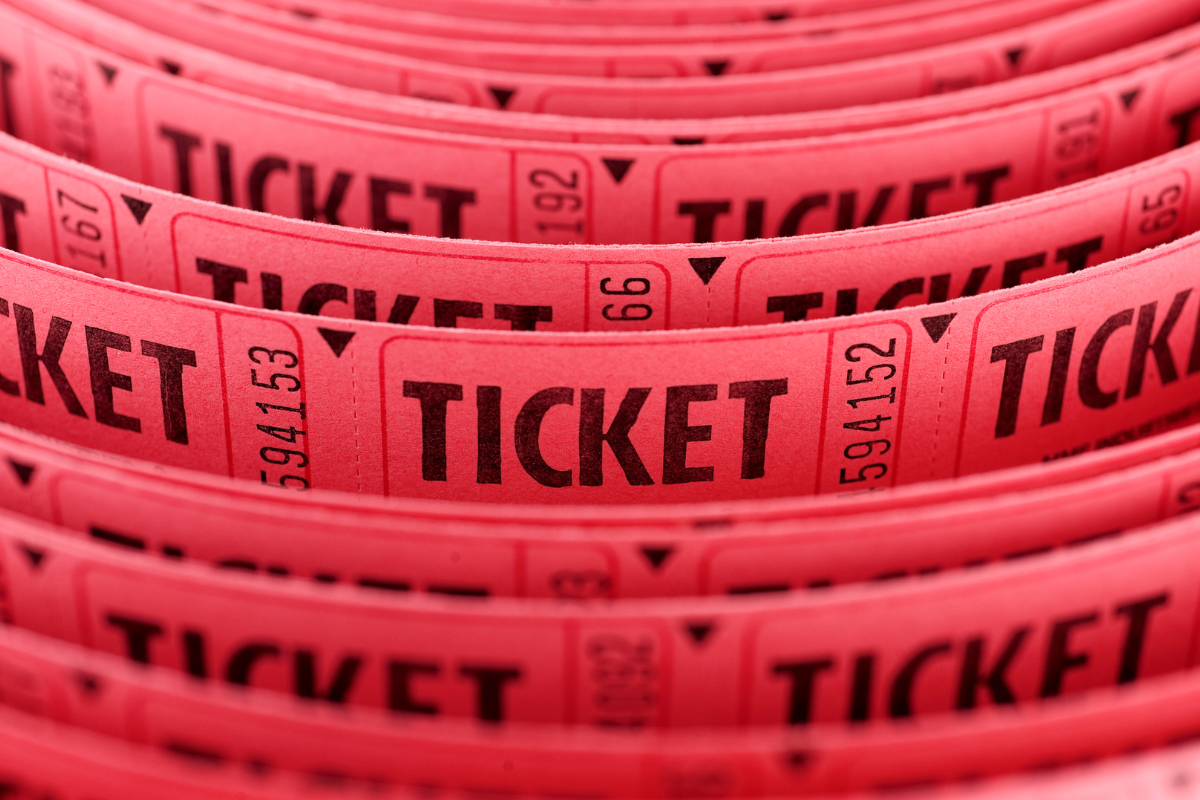Securing the best deals on concert tickets can feel like a game of timing and strategy, often leaving fans wondering when to make their move. Whether you’re aiming for front-row seats or just hoping to catch your favorite artist without breaking the bank, knowing the optimal time to buy can make all the difference. In this guide, we’ll explore insider tips and strategies to help you pinpoint the best moment to purchase concert tickets, ensuring you get the most bang for your buck and an experience to remember.
Understanding Ticket Sales Cycles
The quest for the best deals on concert tickets leads many to ponder the timing of their purchase. Understanding the sales cycle of concert tickets is crucial for snagging them at optimal prices. Initially, tickets are released during the presale period, which is often reserved for fan club members or credit card holders. This phase may offer great seats, but not necessarily the best prices.
Following the presale, the general sale phase begins, opening the ticket floodgates to the public. Prices during this phase can be volatile, depending on demand. It’s not uncommon to see prices drop as the event date nears, especially if the event hasn’t sold out. Sellers, including the official site and resellers, may lower prices to avoid unsold inventory, creating a prime buying opportunity for patient fans.
For those looking to maximize their savings, the last-minute market can be a goldmine. Tickets can drop to their lowest prices in the days or hours leading up to the event as sellers make a final push to offload them. However, this approach carries the risk of missing out entirely if the event sells out or only high-priced tickets remain.
| Phase | Pros | Cons |
|---|---|---|
| Presale | Access to tickets before general public | Prices not at their lowest |
| General Sale | Wide selection available | Prices can be high due to demand |
| Post-Sale | Prices may drop for unsold tickets | Potential for limited selection |
| Last-Minute Market | Lowest possible prices | Risk of missing out |
| Secondary Market | Option to buy sold-out tickets | Prices can be above face value |
Grasping the nuances of the ticket sales cycle not only empowers fans to make informed purchasing decisions but also unveils opportunities for substantial savings. By strategically choosing when to buy, concert-goers can enhance their experience by securing the best seats within their budget, ensuring a memorable event.
Maximizing Your Concert Ticket Purchase
Delving deeper into the concert ticket sales cycle reveals strategies beyond timing. Consider factors such as the artist’s popularity, venue size, and day of the week, which all influence ticket availability and pricing. Engaging with fan clubs and official artist newsletters can also provide early access or discounts. By combining an understanding of sales cycles with these additional insights, concert-goers can further optimize their purchasing strategy, ensuring a great experience without overspending.
Maximizing Your Music Experience: Strategic Ticket Purchasing
Buying concert tickets can feel like a financial gamble, but with the right strategy, you can unlock significant savings. Understanding the dynamics of ticket pricing is crucial. Prices often fluctuate based on demand, artist popularity, venue size, and even the day of the week. Early birds usually benefit from initial sales, often securing tickets at face value before they skyrocket on secondary markets. However, waiting until the last minute can also pay off, as sellers looking to offload tickets reduce prices to avoid a total loss.
Monitoring price trends on reputable ticket platforms can provide invaluable insights. These platforms often have algorithms predicting price drops, offering a prime opportunity for savings. Moreover, joining fan clubs or subscribing to artists’ newsletters can grant access to presale offers, often at lower prices. It’s a delicate balance between acting quickly to snatch up early deals and patiently waiting for potential last-minute offers. Timing is everything, and the sweet spot typically depends on how popular the event is. For sold-out shows, the risk of waiting can outweigh the potential savings, pushing fans to secure tickets as soon as possible.
Additionally, consider the day of the week and time of year. Concerts scheduled on weekdays tend to have lower demand, leading to cheaper tickets as the event approaches. Similarly, outdoor venues during transitional seasons may offer last-minute deals to ensure a full house. Strategically planning your ticket purchase considering these factors can lead to substantial savings and a more enjoyable concert experience without breaking the bank.
- Sign up for artist newsletters and fan clubs for presale access.
- Monitor ticket platforms for price trends and potential drops.
- Consider concerts on weekdays for potentially lower prices.
- Look for last-minute deals, especially for shows not sold out.
- Check for seasonal discounts for outdoor venues during off-peak times.
Monitoring Artist and Venue Presales
Unlocking savings on concert tickets often hinges on acting swiftly during artist and venue presales. These presales are exclusive periods when tickets are available before the general public sale, offering fans a prime opportunity to secure seats. Notably, presales don’t always guarantee lower prices, but they do ensure access to tickets, which is critical for high-demand events.
Engaging with an artist’s fan club or official mailing list is a key strategy. Artists often reward loyal fans with early access codes to presales. Similarly, venues and ticket selling platforms might offer presale opportunities to subscribers or members. This is where diligent monitoring pays off. Signing up for alerts and newsletters from your favorite artists and venues, as well as ticket platforms, can provide a significant advantage.
Another aspect to consider is credit card partnerships. Many credit card companies collaborate with event organizers to offer exclusive presale access to cardholders. This means keeping an eye on your credit card benefits could unexpectedly lead you to early ticket access. Ultimately, the success of securing tickets during presales significantly depends on preparation and quick action.
Additional Insights on Presales
Delving deeper into the realm of artist and venue presales, it’s important to understand the dynamics that influence these opportunities. Presales are often limited in quantity and duration, creating a sense of urgency among potential buyers. This necessitates not only quick action but also a strategic approach to select the right presale window. Familiarizing yourself with the presale process of each artist or venue can offer insights into the best times to purchase. Also, leveraging multiple devices or having a friend ready to assist can enhance your chances of securing tickets during these high-pressure moments.
Strategic Approaches to Maximizing Presale Success
Given the competitive nature of ticket presales, adopting a strategic approach can significantly improve your chances of success. This includes understanding peak times for online traffic and planning your purchase accordingly to avoid website crashes or slow loading times. Additionally, being flexible with your seating preferences can also increase your likelihood of securing tickets, as prime seats tend to sell out quickly.
| Strategy | Benefit | Example |
|---|---|---|
| Joining fan clubs | Early access codes | Artist-specific memberships |
| Subscribing to venues | Presale notifications | Email alerts from venues |
| Credit card perks | Exclusive presale access | Cardholder benefits |
| Multiple devices | Increased chances of success | Desktop and mobile readiness |
| Flexible seating | Better availability | Choosing less popular sections |
Utilizing Secondary Market Dynamics
The secondary market for concert tickets can be a veritable goldmine for those looking to score deals and save money. Understanding the dynamics of this market is crucial for anyone aiming to find the best time to buy concert tickets. Unlike the primary market, where tickets are sold directly from the source at a fixed price, the secondary market is driven by supply and demand. Prices can fluctuate dramatically based on a number of factors, including the popularity of the artist, the size of the venue, and even the day of the week the concert is scheduled.
One key strategy is to monitor the secondary market closely as the event date approaches. Sellers who still have tickets in hand may be willing to lower their prices to avoid a total loss. This desperation often peaks in the final hours before the event, making it a prime time for buyers to find bargains. However, this approach does carry some risk, as waiting too long could result in missing out on a ticket altogether, especially for highly anticipated concerts. Therefore, it’s important to balance the desire for savings with the risk of disappointment.
Another aspect to consider is the impact of external factors such as weather forecasts or competing events. For example, an unfavorable weather prediction can lead to a sudden drop in demand for outdoor concerts, thus driving prices down on the secondary market. Similarly, if another major event is scheduled in the same city on the same night, it could dilute the demand for concert tickets, potentially leading to lower prices. Being attuned to these dynamics and ready to act quickly can help buyers snag tickets at a fraction of their original cost.
Additional insights into the secondary market dynamics reveal that not all concerts are equally impacted by these fluctuations. Niche genres or lesser-known artists might not see the same level of demand variability, meaning that tickets could retain their value or even become harder to find as the event date nears. In such cases, making an early purchase on the secondary market, when selection is broader and prices are more stable, might be the wisest approach.
| Event Date Proximity | Price Impact | Risk Level |
|---|---|---|
| 1-2 weeks before | Decrease slightly | Medium |
| 1 week before | Notable decrease | Medium-High |
| 3-5 days before | Significant decrease | High |
| 24-48 hours before | Steep decrease | Very High |
| Day of event | Varies greatly | Very High |
In conclusion, navigating the secondary market for concert tickets requires a blend of patience, timing, and a bit of luck. By understanding the factors that influence ticket prices and monitoring the market closely, savvy buyers can unlock substantial savings. Just remember, while last-minute deals can be tempting, they come with their own set of risks and uncertainties.
Timing for Discounts and Deals
Finding the best deals on concert tickets often feels like a strategic game, one that requires timing, knowledge, and sometimes a bit of luck. The art of securing tickets at a discounted rate isn’t straightforward, as it depends on a multitude of factors including the artist’s popularity, venue size, and even the time of year. However, understanding the dynamics of ticket sales can significantly increase your chances of landing a great deal.
Typically, tickets are released at their highest prices, as concert promoters test the market’s willingness to pay. As the event date approaches, prices can fluctuate based on demand. For those looking to score discounts, one key strategy is to monitor ticket prices regularly. Prices often drop in the days leading up to the event as sellers look to offload remaining tickets. This period can be precarious, as waiting too long might mean missing out entirely, but for many events, especially those not sold out, significant savings can be found.
Another tactic involves looking for presale opportunities, which are often available to fan club members or credit card holders. These presales not only offer the chance to purchase tickets before the general public but sometimes also include discounts. Additionally, exploring secondary marketplaces can yield deals, especially close to the event date. Sellers on these platforms may reduce prices to ensure their tickets sell, rather than risk a total loss. However, it’s crucial to use reputable sites to avoid scams.
Understanding Market Trends for Better Deals
The concert ticket market is highly volatile, influenced by trends and patterns that can inform savvy buyers. For instance, concerts scheduled on weekdays tend to see slower sales, leading to potential last-minute discounts. Conversely, weekend events, particularly on Saturday nights, sell out more quickly, making deals scarce. Seasonal trends also play a role; summer concerts and festivals often have high demand, pushing prices up, while indoor venues in the winter may offer more competitive pricing as promoters work harder to fill seats.
Maximizing Your Concert Ticket Budget
Maximizing your concert ticket budget doesn’t just involve buying at the right time; it’s also about understanding the full scope of available deals. Joining fan clubs or mailing lists can offer early access to tickets and exclusive discounts. Additionally, some credit card companies partner with event promoters to provide cardholders with special offers, such as reduced pricing or priority seating. By combining timing strategies with these opportunities, concert-goers can enhance their chances of enjoying live music without overstretching their budget.
- Monitor ticket prices regularly as the event date approaches.
- Look for presale opportunities available to fan club members or credit card holders.
- Explore secondary marketplaces close to the event date for potential discounts.
- Join artist fan clubs or mailing lists for early access and exclusive discounts.
- Check if your credit card company offers special deals on concert tickets.
Analyzing Seasonal and Day-of-Week Trends
When it comes to unlocking savings on concert tickets, understanding the seasonal and day-of-week trends is crucial. Generally, the time of year can significantly affect ticket prices due to demand variations. For instance, summer and holiday seasons often see a spike in concert goings due to more free time and tourism. Therefore, buying tickets outside these peak times could lead to substantial savings. Similarly, concerts held on weekdays, especially Mondays through Wednesdays, are usually less sought after, making them a golden opportunity for those looking to save.
Additionally, the announcement and on-sale dates play a pivotal role. Tickets tend to be more expensive right after they go on sale, due to the initial rush of fans trying to secure their spots. Waiting out this initial surge can be beneficial. However, waiting too long, especially for popular artists, might result in prices soaring due to limited availability. It’s a delicate balance, but observing trends for specific artists or venues can provide valuable insights.
Moreover, last-minute purchases can sometimes result in deals, especially if sellers are looking to fill seats. But this approach comes with the risk of missing out entirely. To mitigate this, consider following:
- Artists’ and venues’ social media for flash sales or last-minute deals
- Reputable ticket resale platforms for dropped prices
- Seasonal promotions or holiday sales
- Weekday performances for lower demand shows
- Early bird or presale offers for planning ahead
In conclusion, savvy concert-goers can unlock significant savings by analyzing seasonal and day-of-week trends. Being flexible with your schedule and staying informed about the best times to buy can lead to enjoying your favorite music live without breaking the bank. Remember, the key is to balance the desire for the best seats with the best prices, all while keeping an eye on the ever-changing dynamics of the ticket market.



Leave a Reply